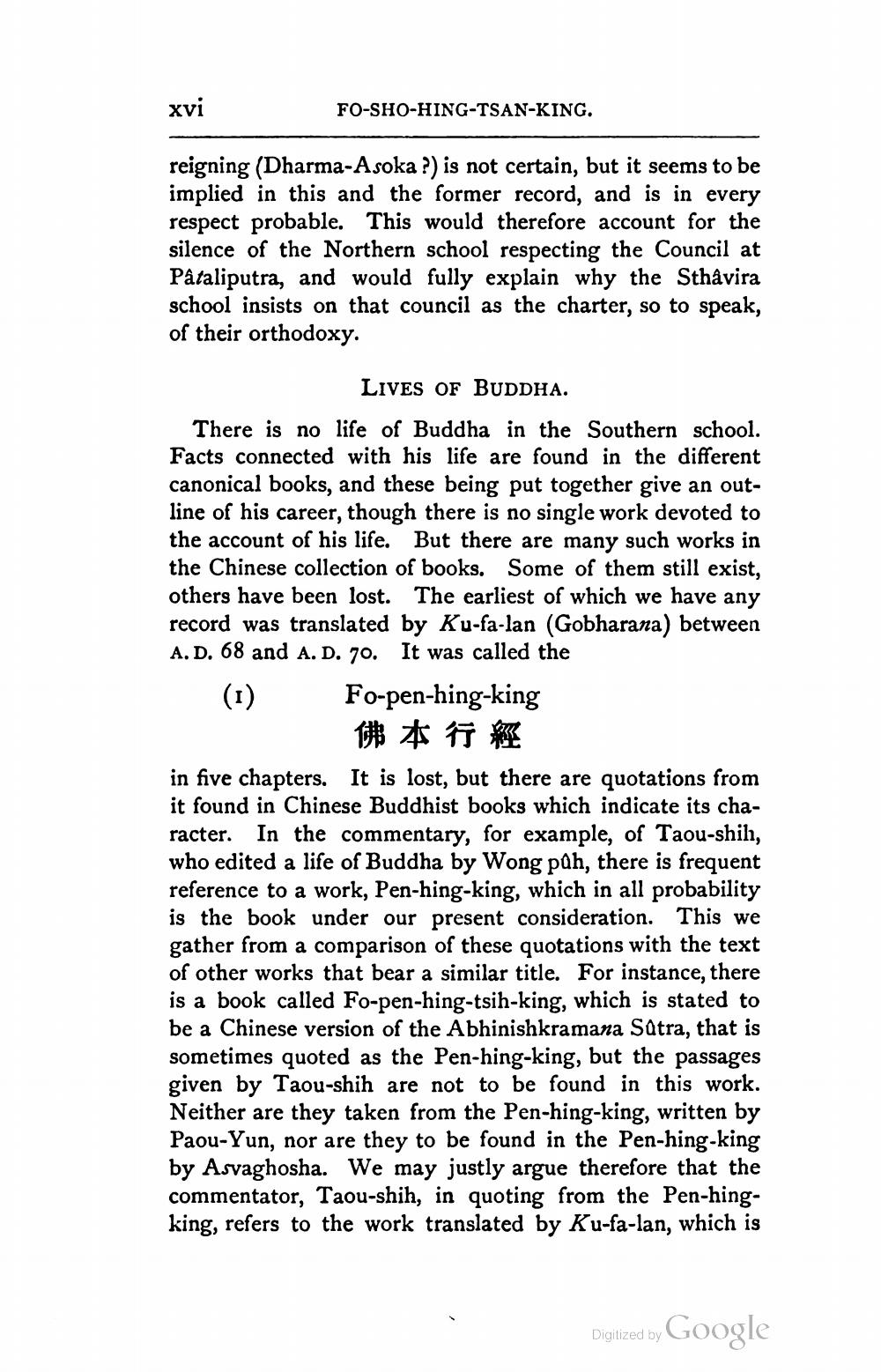________________
xvi
FO-SHO-HING-TSAN-KING.
reigning (Dharma-Asoka ?) is not certain, but it seems to be implied in this and the former record, and is in every respect probable. This would therefore account for the silence of the Northern school respecting the Council at Pataliputra, and would fully explain why the Sthâvira school insists on that council as the charter, so to speak, of their orthodoxy.
LIVES OF BUDDHA.
There is no life of Buddha in the Southern school. Facts connected with his life are found in the different canonical books, and these being put together give an outline of his career, though there is no single work devoted to the account of his life. But there are many such works in the Chinese collection of books. Some of them still exist, others have been lost. The earliest of which we have any record was translated by Ku-fa-lan (Gobharana) between A. D. 68 and A. D. 70. It was called the (1) Fo-pen-hing-king
佛本行經 in five chapters. It is lost, but there are quotations from it found in Chinese Buddhist books which indicate its character. In the commentary, for example, of Taou-shih, who edited a life of Buddha by Wong pah, there is frequent reference to a work, Pen-hing-king, which in all probability is the book under our present consideration. This we gather from a comparison of these quotations with the text of other works that bear a similar title. For instance, there is a book called Fo-pen-hing-tsih-king, which is stated to be a Chinese version of the Abhinishkramana Satra, that is sometimes quoted as the Pen-hing-king, but the passages given by Taou-shih are not to be found in this work. Neither are they taken from the Pen-hing-king, written by Paou-Yun, nor are they to be found in the Pen-hing-king by Asvaghosha. We may justly argue therefore that the commentator, Taou-shih, in quoting from the Pen-hingking, refers to the work translated by Ku-fa-lan, which is
Digitized by Google




